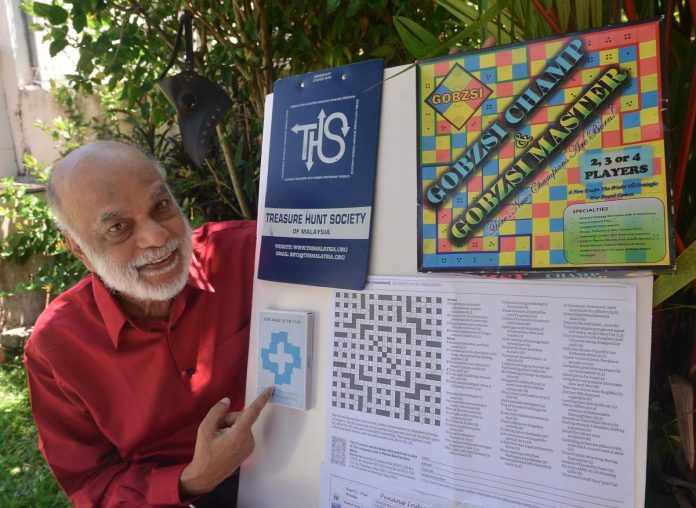FIGURING out and solving the problems that cropped up from complex malfunctioning machines formed the genesis of retired engineer Jayaram Menon’s love of solving puzzles – growing into an ardent 46-year-long passion.
From creating tech puzzles for technicians and engineers circa the 80s, Jayaram would eventually turn his love for puzzles into RoadRunners MS, a project formed with colleagues to offer clients team-building and treasure-hunting experiences.
The former chair of Malaysian Mensa would also play a role as technical consultant for the popular Clever Girl reality show that ran on TV3 for two seasons eight years back.








